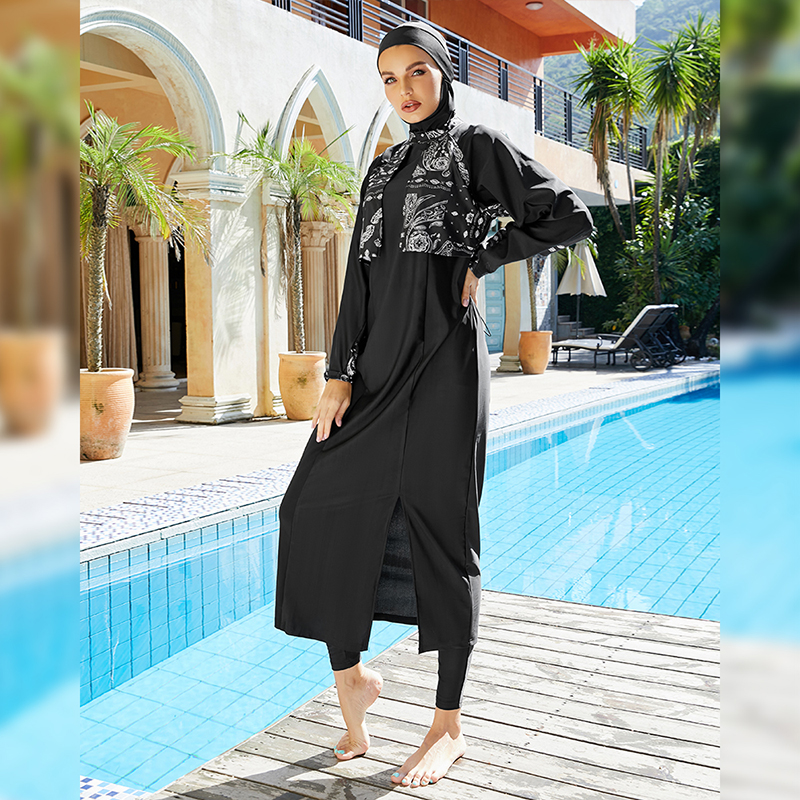
The burkini, a full-body swimsuit worn by some Muslim women, has become a symbol of body positivity and diversity in the fashion industry. The burkini has given Muslim women the opportunity to participate in water sports and swimming while maintaining their religious and cultural values. However, the burkini debate has also highlighted the lack of diversity and inclusivity in the fashion industry, and the need to embrace different body types and cultural identities. In this article, we will explore the issue of the burkini and body positivity, examining the challenges faced by Muslim women and the efforts to promote diversity and inclusivity in the fashion industry.
The challenges faced by Muslim women
Muslim women face multiple challenges when it comes to body image and self-esteem. They may feel pressure to conform to certain beauty standards, which can be difficult to reconcile with their religious and cultural values. Muslim women are often subject to stereotypes and discrimination based on their religious dress and appearance, which can lead to feelings of self-consciousness and shame.
The burkini has become a way for Muslim women to challenge these stereotypes and embrace their bodies. The burkini allows Muslim women to participate in water sports and swimming without feeling exposed or judged. By embracing the burkini, Muslim women are asserting their right to self-expression and autonomy, and challenging the notion that their bodies need to conform to a certain standard.
The fashion industry and body positivity
The fashion industry has traditionally been exclusive and narrow-minded when it comes to body image and representation. The industry has promoted a thin, white, and Eurocentric ideal of beauty, which has left many women feeling excluded and invisible.
However, in recent years, there has been a growing movement towards body positivity and inclusivity in the fashion industry. Brands and designers are starting to embrace different body types and cultural identities, recognizing that beauty comes in all shapes, sizes, and colors.
The burkini and body positivity
The burkini has become a symbol of body positivity and inclusivity in the fashion industry. By promoting the burkini, the fashion industry is recognizing the importance of inclusivity and representation, and the need to cater to diverse customer needs and preferences.
The burkini also promotes body positivity by allowing Muslim women to feel comfortable and confident in their bodies. The burkini promotes the idea that all bodies are beautiful and worthy of respect, regardless of their size or shape.
Efforts to promote diversity and inclusivity
Efforts to promote diversity and inclusivity in the fashion industry are gaining momentum, with brands and designers recognizing the importance of catering to diverse customer needs and preferences. The fashion industry is starting to embrace different body types and cultural identities, and provide clothing and accessories that cater to a wider range of customers.
The burkini has been a catalyst for change in the fashion industry, forcing designers and brands to rethink their approach to body image and representation. Then the burkini has shown that there is a market for modest clothing that accommodates different cultural and religious values, and that there is a need for more inclusive and diverse clothing options.
Conclusion
The burkini and body positivity is a complex issue that involves challenges, stereotypes, and resistance. Muslim women face multiple obstacles when it comes to body image and self-esteem, including pressure to conform to certain beauty standards and discrimination based on their religious dress. However, the burkini has become a symbol of body positivity and inclusivity, promoting the idea that all bodies are beautiful and worthy of respect. The fashion industry is starting to embrace diversity and inclusivity, recognizing the importance of catering to diverse customer needs and preferences. By promoting body positivity and inclusivity, we can create a more diverse and equitable fashion industry that embraces different body types and cultural identities.

